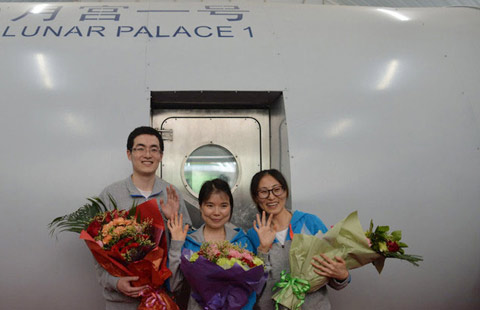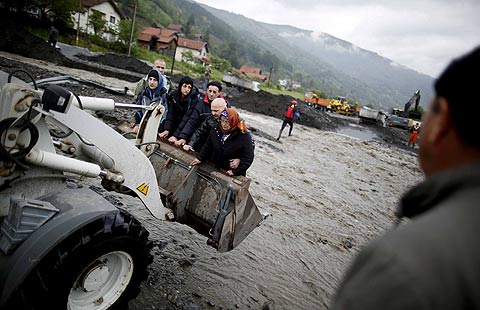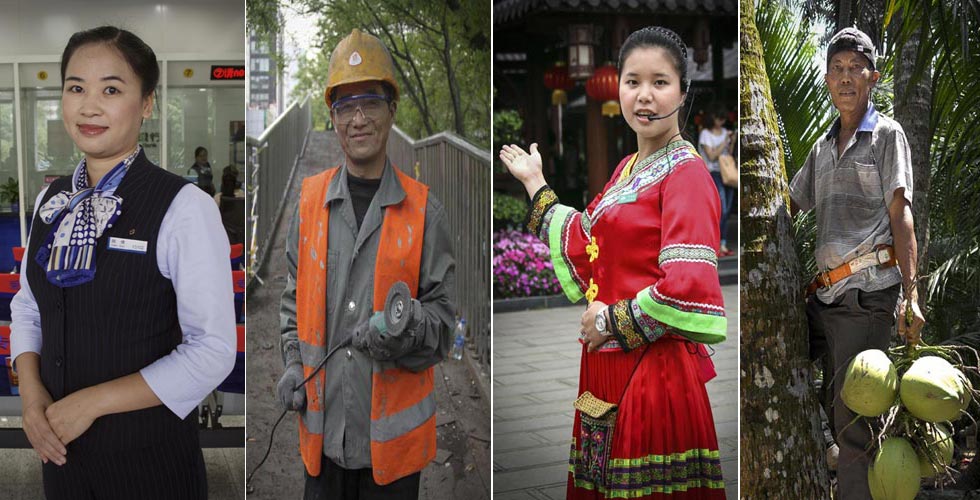Chengdu races to be China's new automotive hub
Updated: 2014-05-01 16:34
(China Daily)
|
|||||||||||
Sichuan capital becomes basefor expansion, technical progress
With car sales rising in China's vast western region, Chengdu appears to have developed a new revenue source with which automobile makers can expand their factories and gain an edge over the fierce competition taking place in the country's eastern region.
Although many cities, including Shenyang in Liaoning province, Changchun in Jilin province, Wuhan in Hubei province and Shanghai, have staked a claim to be the new hub of China's automobile industry, the Sichuan capital is attracting more automakers to assemble vehicles in order to meet the growing demand in China's western market, especially for passenger cars and sport utility vehicles.
According to Shi Yuehua, director of Chengdu's economic and information technology committee, China's coastal market has long been a battlefield for carmakers from Europe, the United States, South Korea and Japan.
"Due to endless price wars, costly advertising and promotional campaigns, restrictions on vehicle purchases to tame heavy air pollution and the near saturation of car ownership in some eastern cities, the coast of China therefore is no longer as fast-growing a marketplace for international vehicle brands as it once was," Shi said.
Automakers' eyes have turned to Chengdu, where activity has been growing exponentially. The output of finished vehicles in FAW-Volkswagen's Chengdu base, a joint venture between China FAW Group Co and Volkswagen AG, hit 1 million units earlier this month.
Juergan Unser, vice-president and board member of FAW-Volkswagen, called the fact that the Chengdu factory has produced 1 million vehicles within three years "another China miracle".
The FAW-Volkswagen joint venture was established in Chengdu in 2009, in the Longquanyi district, 13 kilometers east of downtown. Its first car rolled off the assembly line in 2011. As the second base for FAW-Volkswagen after its headquarters in Changchun, the Chengdu base is now in full operation after a third phase was completed last year.
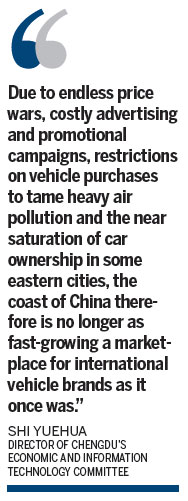
"The Chengdu base now is using its full capacity and aims to produce 600,000 vehicles this year," said Zhang Pijie, general manager of FAW-Volkswagen.
The Chengdu Economic and Technological Development Zone in Longquanyi district has become an important production base for FAW-Volkswagen, FAW Toyota, Volvo and Geely.
Statistics from the CEDZ show it is home to 17 vehicle manufacturers and about 290 related companies that are producing such things as catalytic converters, glass, electronic components and even tires.
"Automobile production in Chengdu is expected to exceed 800,000 units in 2014, generating total sales revenue of over 100 billion yuan ($16 billion)," said Li Hua, deputy director of the CEDZ. Chengdu produced 723,000 vehicles in 2013, up 86.7 percent from a year earlier.
Li said the central government's "Go West" campaign and its continued investment in roads, highways and towns will be key factors in supporting vehicle growth in western China, at least over the next decade.
"A further goal for the auto sector of the CEDZ is to manufacture 1 million vehicles annually by 2016 and 1.8 million by 2020, making it one of China's most important auto production bases," Li said.
The driving forces behind this change are western China's surging demand for vehicles and its fast-growing infrastructure, logistics, communications, tourism, manufacturing and agricultural development. Another factor is rising trade activity with Central Asia and Russia through the international railway linking Chengdu to Lodz, Poland, which went into operation last year.
Regional markets such as Shaanxi, Qinghai and Gansu provinces, and the Tibet and Xinjiang Uygur autonomous regions can all benefit from a booming automobile sector in Chengdu because of their proximity to the city, Li said.
Various vehicles made in Chengdu will also eventually be loaded onto railcars to ship to new markets in Kazakhstan, Russia and Belarus, he said.
Guo Konghui, an academician at the Chinese Academy of Engineering in Beijing, said that with the current global economic picture, the Chinese government wants to shift its focus from investment to domestic consumption, with car consumption playing a key role in this transition
"Chengdu is experiencing a transformation from heavy industry to more high-tech machinery and automobile sectors," Guo said. "Thanks to the city's industrial culture, heritage and vocational education system, recruiting qualified workers will not be a problem whether for Chinese or foreign automobile enterprises."
Indeed, the city has been one of China's hubs for domestic manufacturing production for more than four decades, producing a huge volume of machinery, chemical products, electronics and metallurgical equipment.
Under an arrangement that was set up by universities, vocational colleges, Chengdu's government and foreign automakers, many courses are being taught in English, with materials supplied by overseas companies.
Contact the writer at zhongnan@chinadaily.com.cn
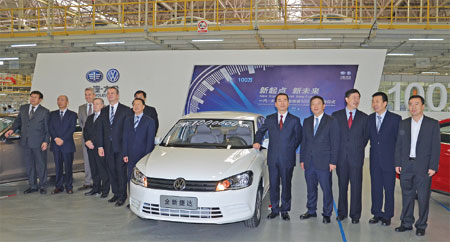 |
|
The output of finished vehicles in FAW-Volkswagen's Chengdu base, a joint venture between China FAW Group Co and Volkswagen AG, hit 1 million units earlier this month. The Sichuan capital is attracting more automakers to assemble vehicles in order to meet the growing demand in China's western market, especially for passenger cars and sport utility vehicles. Provided to China Daily |
Hot Topics
Wei Guirong drives his granddaughters from kindergarten on his home-made three-wheeled vehicle in Luorong county, Liuzhou city of Guangxi Zhuang autonomous region, on May 19.
Editor's Picks

|
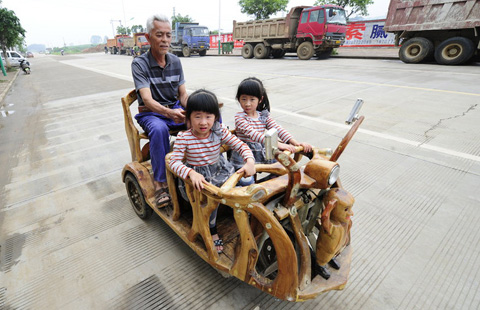
|

|
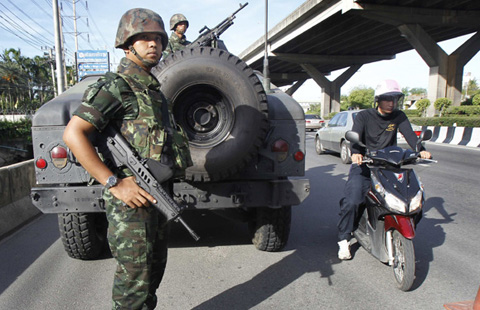
|

|

|


